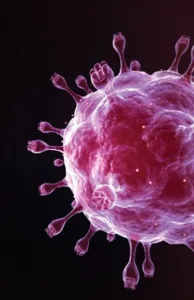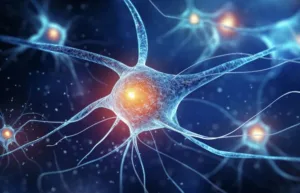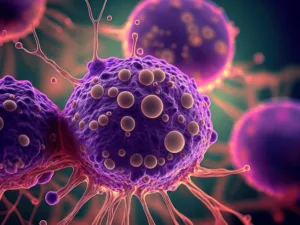How alcohol can harm your body? best blog of 2024. Don’t miss at all
- How alcohol can harm your body:
- Introduction(How alcohol can harm your body):
- How alcohol can harm your body point no.1: Weakening Your Body’s Defense:
- How alcohol can harm your body point no.2: The Devastating Impact on Your Brain: Understanding Alcohol-Related Brain Damage:
- Alcohol and Brain Health: (How alcohol can harm your body)
- Specific Brain Damage and Risks(How alcohol can harm your body)
- The Risk/Benefit Debate:(How alcohol can harm your body)
- How alcohol can harm your body point no.3: Altered States: How Alcohol Affects Your Mood and Behavior
- Short-Term Effects: How alcohol can harm your body
- Long-Term Effects: How alcohol can harm your body
- Motivation Behind Drinking: Regulating Emotions
- How alcohol can harm your body point no.4: When the Heart Breaks: The Cardiovascular Consequences of Heavy Drinking
- 1. Heart Tissue Damage: Before Symptoms Appear
- 2. Other Cardiovascular Risks Associated with Alcohol(How alcohol can harm your body)
- 3. Gender Differences(How alcohol can harm your body)
- How alcohol can harm your body point no.5: Cardiomyopathy: Dilated, Hypertrophic, and Restrictive
- How alcohol can harm your body point no.6: High Blood Pressure (Hypertension) and Alcohol
- How Does Alcohol Affect Blood Pressure?(How alcohol can harm your body)
- Moderation Matters: Alcohol and Blood Pressure(How alcohol can harm your body)
- Defining Alcohol Consumption Levels:(How alcohol can harm your body)
- The Linear Relationship:(How alcohol can harm your body)
- Recommendations for Those with High Blood Pressure:(How alcohol can harm your body)
- How alcohol can harm your body point no.7: How Your Liver Bears the Brunt of Alcohol-Induced Damage
- Stages of Alcoholic Liver Disease:(How alcohol can harm your body)
- How alcohol can harm your body point no.8: Inflammation Nation: Alcoholic Hepatitis and Beyond
- How alcohol can harm your body point no.9: The Final Stage: Cirrhosis as the End Result of Prolonged Liver Injuries
- Cirrhosis: The End Result of Prolonged Liver Injuries(How alcohol can harm your body)
- Causes of Cirrhosis(How alcohol can harm your body)
- Stages of Cirrhosis(How alcohol can harm your body)
- Predicting Life Expectancy(How alcohol can harm your body)
- How alcohol can harm your body point no.10: Alcohol’s Role in Disrupting Digestive Health
- How alcohol can harm your body point no.11: Beyond the Liver: Linking Alcohol to an Increased Risk of Cancer
- How alcohol can harm your body point no.12: How Alcohol Weakens the Cardiac Muscles
- How alcohol can harm your body point no.13: Unraveling the Short-Term and Long-Term Consequences of Alcohol Consumption
- How alcohol can harm your body point no.14: Alcohol’s Toll on Mental Well-being
- How alcohol can harm your body point no.15: The Downward Spiral: Alcohol Addiction as a Catalyst for Self-Destructive Behaviors
- How alcohol can harm your body point no.16: The Unforgiving Risks of Alcohol During Pregnancy and Lactation
- How alcohol can harm your body point no.17: Unleashing the Full Force of Binge Drinking on the Body
- How alcohol can harm your body point no.18: Going Overboard: Acute Intoxication and its Immediate Consequences
- How alcohol can harm your body point no.19: Exploring the Prolonged Physiological Disturbances Caused by Frequent heavy drinking
- Conclusion(How alcohol can harm your body):
- FAQs(How alcohol can harm your body):
How alcohol can harm your body:
Introduction(How alcohol can harm your body):
Alcohol can have significant negative effects on your body(How alcohol can harm your body), both in the short term and over time. Let’s explore some of these effects:
- Brain:
- Alcohol interferes with the brain’s communication pathways, affecting mood, behavior, and cognitive function.
- It can make it harder to think clearly and impair coordination.
- Heart:
- Excessive alcohol consumption can damage the heart, leading to conditions such as cardiomyopathy (stretching and drooping of heart muscle), arrhythmias (irregular heartbeats), and high blood pressure.
- Liver:
- Heavy drinking takes a toll on the liver, causing problems like fatty liver, alcoholic hepatitis, fibrosis, and cirrhosis.
- Cirrhosis is a serious condition where liver tissue is replaced by scar tissue, affecting liver function.
- Pancreas:
- Alcohol prompts the pancreas to produce toxic substances, which can lead to pancreatitis.
- Pancreatitis is a dangerous inflammation that causes swelling, pain, and impairs enzyme and hormone production for digestion.
- Cancer:
- Alcohol consumption is linked to several types of cancer.
- Clear patterns exist between alcohol use and increased risks of head and neck cancer, esophageal cancer, liver cancer, and breast cancer in women.
- Women who consume about one drink per day have a 5 to 9 percent higher chance of developing breast cancer than non-drinkers.
- Even moderate alcohol intake increases the risk of certain cancers
How alcohol can harm your body point no.1: Weakening Your Body’s Defense:

How alcohol can harm your body? Pic credit: Pinterest
The Immune System: A Brief Overview: The immune system is our body’s defense network, safeguarding us against infections, viruses, and other harmful invaders. It comprises various components, including white blood cells, antibodies, and specialized organs like the thymus and spleen.
How Alcohol Affects Immune Function:(How alcohol can harm your body)
- Direct Suppression:
- Alcohol directly suppresses immune function by affecting white blood cells (such as lymphocytes and neutrophils). These cells play a crucial role in identifying and eliminating pathogens.
- Chronic alcohol use reduces the production and activity of these immune cells, leaving us more vulnerable to infections.
- Inflammation and Cytokines:
- Alcohol triggers inflammation in the body, disrupting the balance of cytokines (signaling molecules).
- Excessive alcohol intake leads to an overproduction of pro-inflammatory cytokines, which can harm healthy tissues and impair immune responses.
- Impaired Barrier Function:
- Alcohol damages the epithelial barriers in our body (e.g., gut lining, respiratory tract).
- A compromised barrier allows pathogens to enter more easily, increasing the risk of infections.
- Altered Antibody Production:
- Alcohol disrupts antibody production, affecting our ability to fight off infections.
- Antibodies are essential for recognizing and neutralizing pathogens.
- Nutrient Depletion:
- Alcohol interferes with nutrient absorption (e.g., vitamins A, C, and D) necessary for immune function.
- Deficiencies weaken the immune system.
Specific Effects:
- Increased Susceptibility to Infections: Chronic alcohol use elevates the risk of respiratory infections (like pneumonia), liver infections (hepatitis), and sexually transmitted diseases.
- Delayed Healing: Alcohol delays wound healing due to impaired immune responses.
- Cancer Risk: Alcohol weakens the immune system’s ability to detect and destroy cancer cells.
Moderation and Healthier Choices:
- Moderation is key. Limit alcohol intake to reduce its impact on immunity.
- Opt for healthier alternatives like herbal teas, water, or fresh juices.
How alcohol can harm your body point no.2: The Devastating Impact on Your Brain: Understanding Alcohol-Related Brain Damage:

How alcohol can harm your body? Pic credit: Pinterest
Alcohol and Brain Health: (How alcohol can harm your body)
Alcohol, primarily in the form of ethanol, directly influences brain function. Here are some key points:
- Ethanol as a Depressant:
- Ethanol is classified as a depressant because it slows down brain activity by activating γ-aminobutyric acid (GABA) pathways.
- Acute alcohol consumption can lead to uninhibited behavior, sedation, impaired judgment, and motor function issues.
- At higher levels, alcohol’s effects can progress to coma and even death.
- Known Brain-Damaging Effects of Excess Alcohol:(How alcohol can harm your body)
- Transient memory loss, blackouts, and hangovers related to alcohol consumption pose risks to brain health.
- Excessively high levels of alcohol over short periods are toxic and potentially deadly for the brain.
- Research consistently shows that heavy alcohol use is a very bad choice for overall health, including brain health.
- High alcohol consumption is a causal risk factor for diseases affecting the heart, liver, pancreas, and brain (including fetal brains during pregnancy).
Specific Brain Damage and Risks(How alcohol can harm your body)
- Wernicke-Korsakoff Syndrome (WKS):
- WKS is a brain disorder caused by thiamine deficiency (lack of vitamin B-1).
- Symptoms include amnesia, extreme confusion, and eyesight issues.
- Chronic alcohol abuse can lead to irreversible brain damage associated with WKS.
- Impaired Brain Areas:
- Alcohol interferes with brain areas controlling balance, memory, speech, and judgment.
- This interference increases the likelihood of injuries and other negative outcomes.
- Long-Term Changes:
- Progressive changes occur in the structure and function of the brain with continued alcohol use.
- These changes compromise brain function and contribute to the transition from controlled use to alcohol use disorder (AUD).
The Risk/Benefit Debate:(How alcohol can harm your body)
The debate around alcohol’s risk/benefit ratio primarily concerns mild to moderate alcohol consumption. While some studies suggest potential benefits (such as red wine), the overall consensus is that excessive alcohol use is detrimental to brain health. Moderation is crucial to minimize risks and protect our brains.
How alcohol can harm your body point no.3: Altered States: How Alcohol Affects Your Mood and Behavior

How alcohol can harm your body? Pic credit: Pinterest
Short-Term Effects: How alcohol can harm your body
When you take that first sip of alcohol, a complex dance begins within your brain. Here’s how it unfolds:
- Frontal Lobe Impact:(How alcohol can harm your body)
- Alcohol’s initial impact occurs in the frontal lobe, a region associated with personality development and executive functioning.
- While you won’t develop a completely new personality, alcohol can influence your mood, judgment, insight, and behaviors in the short term.
- Neurotransmitter Changes:(How alcohol can harm your body)
- Alcohol affects neurotransmitters—the brain’s messengers.
- GABA (Gamma-Aminobutyric Acid), an inhibitory neurotransmitter, becomes more active. It helps you feel at ease and relaxed.
- Glutamate, an excitatory neurotransmitter crucial for memory and learning, decreases. This fuzziness contributes to the “next-day fog” after drinking.
- Mood Swings and Behavior Shifts:(How alcohol can harm your body)
- Alcohol can lead to unpredictable mood swings. You might swing from euphoria to irritability within hours.
- Decreased inhibition can make you more outgoing or impulsive.
- That nervous dancer? After a few drinks, they’re pulling friends onto the dance floor.
Long-Term Effects: How alcohol can harm your body
The impact of alcohol over the long term depends on quantity and frequency. Here’s what happens:
- Brain Function Compromised:(How alcohol can harm your body)
- Chronic alcohol misuse affects areas like abstract thinking, problem-solving, and emotion perception.
- Memory issues and deficits may be long-lasting.
- Brain changes can influence behavior and personality.
- Heart Disease and Liver Damage:(How alcohol can harm your body)
- Heart disease: Alcohol raises blood pressure, narrows arteries, and increases the risk of heart attacks and strokes.
- Liver disease: Alcohol damages the liver, leading to fatty liver disease, hepatitis, and cirrhosis.
- Emotional Roller Coaster:(How alcohol can harm your body)
- Alcohol forces our bodies to produce more serotonin and endorphins, affecting emotions and relaxation.
- The more you drink, the more volatile your moods become over time.
Motivation Behind Drinking: Regulating Emotions
Why do people drink? One theory suggests that alcohol use is learned through reinforcement, specifically the reinforcement of affective change.
- People often report drinking to alter their emotional state.
- However, causality isn’t straightforward, as conscious insight into behavior varies.
- Theories emphasize affective change as a motivator for alcohol use
How alcohol can harm your body point no.4: When the Heart Breaks: The Cardiovascular Consequences of Heavy Drinking

How alcohol can harm your body? Pic credit: Pinterest
Let’s delve into the cardiovascular consequences of heavy drinking(How alcohol can harm your body) and explore how alcohol impacts the heart:
1. Heart Tissue Damage: Before Symptoms Appear
A new study highlights a concerning finding: heavy drinking can cause heart tissue damage even before symptoms arise. Here’s what we know:
- Study Details:
- Researchers examined blood samples from 2,525 adults aged 35-69.
- Most participants were from the general population of Arkhangelsk, a city in northwest Russia.
- The remaining 278 participants were being treated for alcoholism at a local psychiatric hospital.
- Blood samples were tested for proteins and hormones related to heart health.
- Defining Heavy Drinking:
- Participants were categorized based on self-reported consumption.
- Heavy drinking was defined by:
- Having six or more drinks on one occasion.
- Feeling hungover or drunk.
- Needing a drink first thing in the morning.
- Having lives disrupted due to drinking.
- Having a concerned family member.
- Results:(How alcohol can harm your body)
- Compared to the general population without a drinking problem:
- Hospital patients (with the heaviest drinking habits) showed:
- 10.3% more evidence of potential heart injury.
- 46.7% higher blood markers indicating possible stretching of the heart wall.
- 69.2% higher markers for inflammation.
- General population participants with more frequent alcohol intake exhibited signs of 31.5% more stretching of the heart wall.
- Hospital patients (with the heaviest drinking habits) showed:
- Compared to the general population without a drinking problem:
- Inflammation and Cardiovascular Risk:(How alcohol can harm your body)
- The study suggests that heavy drinkers create higher-than-normal levels of inflammation in their bodies.
- This inflammation is linked to a wide range of health conditions, including cardiovascular disease.
- Limitations:
- The study was limited to one location (Arkhangelsk) and participants of Eastern European or Russian descent.
- Results cannot be generalized to other populations.
- Future Research:
- Researchers are now studying ultrasound images of the heart during beats to identify specific types of heart damage linked to heavy drinking.
2. Other Cardiovascular Risks Associated with Alcohol(How alcohol can harm your body)
- Cardiomyopathy: Chronic heavy drinking can lead to cardiomyopathy, where the heart muscle weakens, affecting blood pumping efficiency.
- Arrhythmias: Alcohol contributes to irregular heartbeats (such as atrial fibrillation), which can lead to blood clots, strokes, and heart attacks.
3. Gender Differences(How alcohol can harm your body)
- Women who binge drink face a 68% higher risk of developing heart disease compared to a 33% increased risk for men.
How alcohol can harm your body point no.5: Cardiomyopathy: Dilated, Hypertrophic, and Restrictive

How alcohol can harm your body? Pic credit: Pinterest
1. Dilated Cardiomyopathy (DCM)
- Definition:
- DCM is characterized by an ejection fraction (the percentage of blood pumped out of the heart with each beat) of less than 40%.
- The left ventricular dimension is increased, exceeding 115% of the size calculated for age and body surface area.
- In some cases, increased dimensions with preserved systolic function may precede the development of systolic dysfunction.
- Causes:
- Chronic, excessive alcohol consumption is a known cause of DCM.
- Other factors include dietary deficiencies, infections (such as viral myocarditis), toxins, and, rarely, genetics.
- Prevalence:
- Accurate prevalence assessment is challenging due to undiagnosed cases.
- Approximately 5 million Americans have symptomatic heart failure, but an estimated 50 million fulfill criteria for structural heart disease (American Heart Association–American College of Cardiology definitions) without heart failure symptoms.
2. Hypertrophic Cardiomyopathy (HCM)
- Overview:
- HCM is the most common primary cardiomyopathy.
- It involves abnormal thickening of the heart muscle, especially the left ventricle.
- Symptoms include exertional dyspnea, atypical chest pain, heart failure, and sudden cardiac death.
- Signs and Symptoms:
- Chest pain
- Shortness of breath even with minimal exertion
- Loss of consciousness
- Fatigue
- Heart arrhythmias (abnormal heartbeats)
- Swelling in the legs, feet, and abdomen
3. Restrictive Cardiomyopathy
- Overview:
- Restrictive cardiomyopathy involves stiffening of the heart muscle, impairing its ability to relax and fill with blood.
- The heart becomes less compliant, leading to reduced blood flow.
- Symptoms resemble those of heart failure.
- Causes:
- Infiltrative diseases (such as amyloidosis or sarcoidosis) can cause restrictive cardiomyopathy.
- Fibrosis, scarring, or other structural changes in the heart tissue contribute to stiffness.
4. Interplay Between Types
- Dynamic Progression:
- Some conditions initially manifest as one type of cardiomyopathy and progress to another.
- For example, hypertensive heart disease may start with a hypertrophic pattern and later evolve into DCM.
- Sarcoidosis can exhibit features of both restrictive and dilated cardiomyopathy at different disease stages.
How alcohol can harm your body point no.6: High Blood Pressure (Hypertension) and Alcohol

How alcohol can harm your body? Pic credit: Pinterest
How Does Alcohol Affect Blood Pressure?(How alcohol can harm your body)
When you consume alcohol, it triggers several physiological responses that impact blood pressure:
- Sympathetic Nervous System Activation:
- Alcohol increases sympathetic nervous system (SNS) excitability.
- The SNS, when stimulated due to stress or alcohol intake, works harder than usual.
- Result: Increased heart rate and constriction of blood vessels.
- Baroreceptor Impairment:
- Alcohol can impair or diminish baroreceptors in the brain.
- Baroreceptors sense blood pressure changes and signal the body to adjust.
- Impaired baroreceptors lead to less effective responses to blood pressure changes, potentially causing persistent hypertension.
- Adrenaline Release:
- Alcohol stimulates the release of adrenaline, putting the body in a fight-or-flight mode.
- Elevated adrenaline levels contribute to higher blood pressure.
Moderation Matters: Alcohol and Blood Pressure(How alcohol can harm your body)
- Studies consistently show that both moderate and excessive alcohol consumption can increase the risk of high blood pressure.
- The type of alcohol matters less than the amount consumed and the frequency.
- Even one alcoholic beverage per day has been linked to higher blood pressure compared to non-drinkers.
Defining Alcohol Consumption Levels:(How alcohol can harm your body)
- The National Institute on Alcohol Abuse and Alcoholism categorizes alcohol intake as follows:
- Moderate Drinking:
- Up to one drink per day for women.
- Up to two drinks per day for men.
- Excessive Drinking:
- Regularly exceeding 30 grams (approximately two standard drinks) per day significantly increases the risk of developing high blood pressure.
- Moderate Drinking:
The Linear Relationship:(How alcohol can harm your body)
- Alcohol intake and blood pressure have a nearly linear dose-response relationship.
- No evidence suggests a threshold for this association.
- The more alcoholic drinks consumed daily, the higher the systolic blood pressure tends to be.
Recommendations for Those with High Blood Pressure:(How alcohol can harm your body)
- Moderate or decrease alcohol consumption:
- While complete abstinence isn’t necessary, moderation is key.
- Cutting back on alcohol can help manage blood pressure.
- Be mindful at social events:
- It’s challenging to avoid alcohol entirely, but excessive consumption increases risk.
- Consult your doctor:
- If you have high blood pressure, follow your doctor’s advice regarding alcohol intake.
How alcohol can harm your body point no.7: How Your Liver Bears the Brunt of Alcohol-Induced Damage

How alcohol can harm your body? Pic credit: Pinterest
Alcoholic Liver Disease (ALD) is a condition caused by excessive alcohol consumption. The liver plays a crucial role in metabolizing or processing ethanol, the primary component of alcohol. Over time, heavy drinking can lead to liver damage and various stages of ALD. Let’s break down the process and its impact:
Stages of Alcoholic Liver Disease:(How alcohol can harm your body)
- Alcoholic Fatty Liver Disease (Steatosis):(How alcohol can harm your body)
- Early Stage: Fat deposits accumulate in the liver due to alcohol consumption.
- Symptoms: Often, there are no noticeable symptoms.
- Reversibility: Fortunately, fatty liver disease can usually be reversed by abstaining from alcohol. After two to three weeks of alcohol cessation, fatty deposits disappear, and liver biopsies appear normal.
- Alcoholic Hepatitis:(How alcohol can harm your body)
- Inflammation and Damage: The liver becomes inflamed and damaged due to alcohol abuse(How alcohol can harm your body).
- Symptoms:
- Fever
- Jaundice (yellowing of the skin)
- Malnourishment
- Swelling
- Accumulation of fluid around the liver
- Progression: Although most heavy drinkers develop fatty liver disease, only 20% to 40% progress to alcoholic hepatitis.
- Alcoholic Cirrhosis:(How alcohol can harm your body)
- Scarring and Dysfunction: Scarring (fibrosis) in the liver impairs its function.
- Symptoms:
- Weight loss
- Fatigue
- Muscle cramps
- Easy bruising
- Jaundice
- Liver Failure: Cirrhosis can lead to liver failure, where the liver is severely damaged and unable to function properly. Other organs may also fail.
- Liver Cancer Risk: Although rare, liver cancer can develop from cirrhosis-related damage.
Liver Regeneration and Permanent Damage:(How alcohol can harm your body)
- The liver has remarkable regenerative abilities. It can repair itself and generate new cells.
- However, in advanced alcoholic liver disease, this regeneration process is impaired, leading to permanent damage.
- Liver failure becomes a real risk when the damage reaches a critical point.
How Alcohol Damages the Liver:(How alcohol can harm your body)
- Metabolism: When alcohol enters the bloodstream, the liver metabolizes it into a toxic chemical called acetaldehyde. Acetaldehyde can damage liver cells.
- Fat Accumulation: Alcohol ingestion leads to the production of abnormal levels of fats, which are stored in the liver.
- Inflammation and Fibrosis: Chronic alcohol abuse causes liver inflammation and the formation of scar tissue (fibrosis). This impairs liver function and can be fatal.
Preventing and Treating Alcoholic Liver Disease:(How alcohol can harm your body)
- Moderation: Reducing alcohol intake is crucial. Fatty liver disease often reverses when alcohol consumption stops.
- Medical Support: For advanced stages, medical intervention is necessary. Treatment may involve lifestyle changes, medications, and addressing complications.
- Liver Transplant: In severe cases, a liver transplant may be the only option.
Remember, supporting liver health through responsible alcohol consumption and seeking timely medical advice can prevent irreversible damage
How alcohol can harm your body point no.8: Inflammation Nation: Alcoholic Hepatitis and Beyond

How alcohol can harm your body? Pic credit: Pinterest
Alcoholic Hepatitis: (How alcohol can harm your body)
Alcoholic hepatitis is a severe form of alcoholic liver disease (ALD). It manifests as a clinical syndrome characterized by jaundice (yellowing of the skin) and progressive inflammatory liver injury. The condition primarily affects individuals with a history of prolonged periods of excess alcohol consumption and recent heavy alcohol abuse.
The Grim Reality of Severe Alcoholic Hepatitis(How alcohol can harm your body)
- Life-Threatening: Severe AH is a life-threatening condition, with a high short-term mortality rate—around 30–50% within one month from the initial presentation.
- Precipitating Factors: Chronic ALD with active alcohol binge and systemic inflammatory response syndrome (SIRS) due to bacterial infection are common precipitating factors for acute-on-chronic liver failure (ACLF). ACLF is a newly recognized syndrome characterized by acute decompensation, organ failures, and a high risk of short-term mortality.
Understanding the Pathogenesis of AH(How alcohol can harm your body)
- Inflammatory Mediators: Numerous pro-inflammatory mediators, metabolic pathways, transcriptional factors, and epigenetic factors contribute to the development and progression of AH.
- Liver Failure and Mortality: Liver failure and mortality in AH patients result from a combination of factors, including hepatocyte death, inflammation, and impaired liver regeneration.
Interleukin-22 (IL-22): (How alcohol can harm your body)
IL-22 Biology: IL-22 is a protein with multifaceted roles:
-
- Anti-Apoptosis: It protects against cell death.
- Anti-Fibrosis: It helps prevent liver fibrosis.
- Anti-Oxidation: It combats oxidative stress.
- Anti-Bacterial Infection: It enhances the liver’s defense against infections.
- Regenerative Stimulation: It promotes liver regeneration.
- Preclinical Models: IL-22 has shown promise in various preclinical models, including:
- Chronic-Plus-Binge Ethanol Feeding Model: This model better mimics human patterns of alcohol abuse and reproduces features of liver damage and inflammation seen in AH patients.
- Acute-on-Chronic Liver Failure Model: IL-22 has been studied in this context.
- Nonalcoholic Steatohepatitis Model: IL-22’s protective effects extend beyond AH to other liver diseases.
Clinical Trials and Promising Benefits
- IL-22 in Clinical Trials: Ongoing clinical trials are evaluating IL-22 for the treatment of AH.
- Promising Outcomes: Initial results show some benefits for AH patients.
- Hope on the Horizon: While no new drugs for AH have been successfully developed yet, IL-22 therapy provides hope for better outcomes
How alcohol can harm your body point no.9: The Final Stage: Cirrhosis as the End Result of Prolonged Liver Injuries

How alcohol can harm your body? Pic credit: Pinterest
Cirrhosis: The End Result of Prolonged Liver Injuries(How alcohol can harm your body)
Cirrhosis is a late-stage liver disease where the liver undergoes significant scarring (fibrosis). This scarring replaces healthy liver tissue, impairing its ability to function properly. As cirrhosis progresses, it can lead to liver failure, a critical condition that significantly impacts a person’s health and longevity.
Causes of Cirrhosis(How alcohol can harm your body)
- Chronic Liver Disease:(How alcohol can harm your body)
- Cirrhosis often develops as a result of chronic liver diseases, including:
- Hepatitis B or C infection
- Alcoholic liver disease
- Nonalcoholic fatty liver disease (NAFLD)
- Autoimmune hepatitis
- Primary biliary cholangitis
- Hemochromatosis
- Wilson’s disease
- Alpha-1 antitrypsin deficiency
- Cirrhosis often develops as a result of chronic liver diseases, including:
- Scar Tissue Formation:(How alcohol can harm your body)
- Over time, repeated liver injuries lead to inflammation and scarring.
- Scar tissue replaces healthy liver cells, disrupting normal liver function.
Stages of Cirrhosis(How alcohol can harm your body)
- Compensated Cirrhosis:(How alcohol can harm your body)
- In this stage, individuals may not show symptoms.
- Life expectancy is around 9–12 years.
- Some people remain asymptomatic for years, while others may develop symptoms gradually.
- Decompensated Cirrhosis:(How alcohol can harm your body)
- Individuals with decompensated cirrhosis experience symptoms and complications.
- Life expectancy is significantly reduced compared to compensated cirrhosis.
- Referral for a possible liver transplant is recommended at this stage.
Predicting Life Expectancy(How alcohol can harm your body)
- Child-Turcotte-Pugh (CTP) System:(How alcohol can harm your body)
- Physicians use the CTP system to assess cirrhosis severity based on specific criteria:
- Ascites (abnormal fluid buildup in the abdomen)
- Brain dysfunction (hepatic encephalopathy)
- Albumin levels
- Bilirubin levels
- Blood clotting time (INR)
- CTP scores help project life expectancy:
- Class A: 5–6 points (9–12 years)
- Class B: 7–9 points (reduced survival)
- Class C: 10–15 points (average life expectancy of about 2 years)
- Physicians use the CTP system to assess cirrhosis severity based on specific criteria:
- Model for End-Stage Liver Disease (MELD):(How alcohol can harm your body)
- MELD estimates life expectancy and prioritizes liver transplants.
- Scores consider bilirubin, creatinine, and INR levels.
- Survival rates based on MELD scores:
- 3-month: Class A (95.7%), Class B (88.8%), Class C (59.9%)
- 1-year: Class A (95%), Class B (80%), Class C (45%)
- 2-year: Class A (90%), Class B (70%), Class C (38%)
How alcohol can harm your body point no.10: Alcohol’s Role in Disrupting Digestive Health

How alcohol can harm your body? Pic credit: Pinterest
Alcohol’s Impact on Digestive Health: A Closer Look
Alcohol consumption is a common social activity, but its effects on the body extend beyond the liver. Researchers have been uncovering the impact of alcohol on the gut, shedding light on how it disrupts the delicate balance of the gut microbiome and affects gastrointestinal health. Here are five key points to consider:
- Pro-Inflammatory Gut Bacteria:(How alcohol can harm your body)
- The gut microbiome consists of thousands of different bacteria, viruses, and fungi. Most of these microbes have a beneficial relationship with the body, but some can be potentially harmful.
- When someone drinks excessive amounts of alcohol, the gut microbiome undergoes changes. Pro-inflammatory microbes may proliferate, while beneficial ones decline.
- Unhealthy alcohol consumption can lead to gut inflammation, not only locally but also systemically. This inflammation has been linked to conditions like obesity, Type 2 diabetes, and hardening of the arteries.
- Imbalanced gut bacteria have also been associated with mental health issues such as depression.
- Chronic Liver Disease:(How alcohol can harm your body)
- Excessive alcohol use is a well-known risk factor for chronic liver disease. It can lead to liver inflammation, fatty liver, and ultimately cirrhosis.
- Chronic liver disease disrupts the normal functioning of the liver, affecting digestion, nutrient absorption, and overall health.
- Pancreatitis:(How alcohol can harm your body)
- Alcohol abuse is a significant cause of pancreatitis, an inflammatory condition affecting the pancreas.
- Pancreatitis disrupts the production of digestive enzymes, leading to abdominal pain, nausea, and impaired digestion.
- Alcohol-Involved Gastritis:(How alcohol can harm your body)
- Gastritis refers to inflammation of the stomach lining. Alcohol can irritate and damage this sensitive lining, leading to gastritis.
- Symptoms of alcohol-involved gastritis include stomach pain, bloating, and discomfort.
- Increased Risk of GI Cancers:(How alcohol can harm your body)
- Chronic alcohol consumption has been linked to an increased risk of gastrointestinal (GI) cancers, including esophageal, stomach, and colorectal cancers.
- The mechanisms behind this association are complex, but alcohol’s impact on gut health likely plays a role.
How alcohol can harm your body point no.11: Beyond the Liver: Linking Alcohol to an Increased Risk of Cancer

How alcohol can harm your body? Pic credit: Pinterest
Alcohol, a common social beverage, has long been associated with liver damage. However, its impact extends beyond the liver, affecting various aspects of health, including cancer risk. Let’s delve into the intricate relationship between alcohol consumption and cancer:
- Liver Cancer:(How alcohol can harm your body)
- Hepatocellular Carcinoma (HCC): Chronic and heavy alcohol use significantly increases the risk of HCC, the most common type of liver cancer. Alcohol-induced liver damage, such as cirrhosis, plays a crucial role in this association.
- Intrahepatic Cholangiocarcinoma: Alcohol consumption is also linked to an increased risk of intrahepatic cholangiocarcinoma, a bile duct cancer that originates within the liver.
- Breast Cancer:(How alcohol can harm your body)
- Epidemiological studies consistently show a positive correlation between alcohol intake and breast cancer risk. The more alcohol a person regularly consumes, the higher their risk of developing breast cancer.
- The exact mechanisms are not fully understood, but alcohol may influence hormone levels, DNA damage, and inflammation, all of which contribute to breast cancer development.
- Other Cancers:(How alcohol can harm your body)
- Esophageal Cancer: Alcohol consumption is a well-established risk factor for esophageal cancer, particularly squamous cell carcinoma of the esophagus.
- Colorectal Cancer: Regular alcohol use is associated with an increased risk of colorectal cancer. The underlying mechanisms involve alcohol’s impact on gut microbiota, inflammation, and DNA damage.
- Head and Neck Cancers: Alcohol is a significant contributor to cancers of the oral cavity, pharynx, and larynx. These cancers often occur in conjunction with tobacco use, further amplifying the risk.
- Pancreatic Cancer: Although the evidence is less consistent, some studies suggest a link between alcohol consumption and pancreatic cancer.
- Mechanisms:(How alcohol can harm your body)
- DNA Damage: Alcohol metabolism produces harmful byproducts that can damage DNA, potentially leading to cancerous mutations.
- Inflammation: Chronic alcohol use triggers inflammation, which is a key driver of cancer development.
- Hormone Disruption: Alcohol affects hormone levels, including estrogen, which plays a role in breast cancer.
- Nutrient Depletion: Alcohol interferes with nutrient absorption, affecting overall health and cancer risk.
- Moderation Matters:(How alcohol can harm your body)
- The Dietary Guidelines for Americans recommend moderate alcohol consumption: up to 2 drinks per day for men and 1 drink per day for women.
- Binge drinking (consuming 4 or more drinks for women and 5 or more drinks for men in one sitting) is associated with increased cancer risk.
How alcohol can harm your body point no.12: How Alcohol Weakens the Cardiac Muscles

How alcohol can harm your body? Pic credit: Pinterest
Alcohol, often consumed socially, can have detrimental effects on the heart beyond liver damage. Let’s explore how alcohol weakens cardiac muscles and contributes to heart-related health issues:
- Alcoholic Cardiomyopathy:(How alcohol can harm your body)
- Definition: Alcoholic cardiomyopathy is a form of heart disease caused by chronic alcohol abuse.
- Mechanism: Long-term alcohol consumption damages and weakens the heart muscle over time. The toxic effects of alcohol impair the heart’s ability to pump blood efficiently.
- Enlargement and Thinning: As the heart struggles to pump enough blood, it compensates by expanding to hold the extra blood. This leads to thinning and enlargement of the heart muscle.
- Symptoms: Alcoholic cardiomyopathy may not cause symptoms until it’s advanced. Common symptoms include shortness of breath, swelling in the legs and ankles, fatigue, weakness, and irregular heartbeat.
- Causes of Alcoholic Cardiomyopathy:(How alcohol can harm your body)
- Alcohol Toxicity: Alcohol damages the heart muscle directly, affecting its contractility and overall function.
- Nutritional Deficiencies: Heavy alcohol use often leads to malnutrition. Deficiencies in essential nutrients like thiamine, magnesium, and selenium further weaken the heart.
- Other Heart-Related Risks from Alcohol:(How alcohol can harm your body)
- Stroke and Heart Attack: Excessive alcohol weakens the heart’s pumping ability, increasing the risk of stroke and heart attack.
- Alcohol-Induced Heart Failure: Alcoholic cardiomyopathy can progress to congestive heart failure (CHF), where the heart can’t meet the body’s demands for blood and oxygen.
- Arrhythmias: Irregular heart rhythms (arrhythmias) are common in alcohol-related heart conditions.
- Prevention and Treatment:(How alcohol can harm your body)
- Moderation: Limit alcohol intake to prevent heart damage. Follow recommended daily limits (up to 2 drinks per day for men, 1 drink per day for women).
- Nutritional Support: Address nutrient deficiencies through a balanced diet or supplements.
- Seek Medical Help: If you suspect alcoholic cardiomyopathy, consult a doctor promptly. Early intervention can prevent worsening of the condition.
How alcohol can harm your body point no.13: Unraveling the Short-Term and Long-Term Consequences of Alcohol Consumption

How alcohol can harm your body? Pic credit: Pinterest
From a casual glass of wine with dinner to a night out with friends, alcohol consumption is deeply ingrained in social practices and cultural traditions worldwide. However, beyond the immediate effects of intoxication and hangovers, long-term alcohol use can have significant consequences for both physical health and mental well-being. Let’s delve into the intricate relationship between alcohol and its impact on various body systems:
- Cardiovascular System:(How alcohol can harm your body)
- Short-Term Effects: When you consume alcohol, your heart rate increases, and even moderate drinking can elevate blood pressure. These effects are transient but can strain the cardiovascular system.
- Long-Term Risks: Chronic alcohol use and binge drinking damage the heart muscle, making it less effective at pumping blood. This impairment can lead to arrhythmias (irregular heartbeats), hypertension (high blood pressure), and an increased risk of heart attack, stroke, and heart failure.
- Liver:(How alcohol can harm your body)
- Metabolism and Damage: The liver metabolizes most of the alcohol you consume, breaking it down into acetaldehyde. Unfortunately, acetaldehyde is a toxin that can harm organs and tissues before further breakdown into acetate.
- Liver Diseases: Years of moderate to heavy drinking can cause liver scarring (fibrosis), increasing the risk of liver diseases such as cirrhosis, alcoholic hepatitis, fatty liver disease, and even liver cancer.
- Gastrointestinal (GI) System:
- Short-Term Irritation: Alcohol irritates the lining of the stomach and intestines, leading to symptoms like diarrhea, nausea, and vomiting after a night of drinking.
- Long-Term Consequences: Excessive alcohol disrupts the balance of gut bacteria (dysbiosis), triggering chronic gastrointestinal inflammation. This inflammation raises the risk of various GI diseases. Additionally, alcohol impairs nutrient absorption in the small intestine, potentially leading to malnutrition.
- Brain:
- Vulnerability: The brain is highly susceptible to alcohol’s damaging effects. It disrupts communication between brain cells.
- Cognitive Decline: Excessive or chronic alcohol use results in a gradual decline in cognitive function. Memory problems, difficulty learning new information, mood changes, and altered behavior are common consequences.
- Psychological Effects:
- Depression and Anxiety: Alcohol can exacerbate existing mental health conditions or contribute to new ones. It may temporarily alleviate anxiety but worsen it in the long run.
- Impaired Judgment: Intoxication impairs decision-making and impulse control, leading to risky behaviors.
- Sleep Disturbances: Alcohol disrupts sleep patterns, affecting overall well-being and mental health.
- Addiction and Withdrawal:
- Dependency: Chronic alcohol use can lead to addiction. The brain becomes reliant on alcohol, and withdrawal symptoms (such as tremors, anxiety, and sweating) occur when alcohol intake is reduced.
- Cycle of Dependence: The desire to avoid withdrawal symptoms perpetuates the cycle of alcohol dependence.
- Treatment and Prevention:
- Moderation: Following recommended daily limits (up to 2 drinks per day for men, 1 drink per day for women) can minimize risks.
- Seeking Help: If you suspect alcohol-related health issues, consult a healthcare professional. Early intervention is crucial.
How alcohol can harm your body point no.14: Alcohol’s Toll on Mental Well-being

How alcohol can harm your body? Pic credit: Pinterest
Alcohol, often seen as a social lubricant, has a profound impact on mental health. Beyond the initial relaxation it provides, alcohol can significantly affect our emotional well-being. Let’s explore the intricate relationship between alcohol consumption and mental health:
- Immediate Effects:
- Relaxation and Intoxication: When you consume alcohol, it affects your brain, leading to feelings of relaxation and lowered inhibitions. However, as you drink more, you become intoxicated, unsteady, and may engage in behaviors you wouldn’t otherwise.
- Self-Medication: Some people turn to alcohol to cope with stress, anxiety, and depression. Initially, it may provide temporary relief, but this effect doesn’t last long. The bliss fades, and alcohol can worsen existing mental health symptoms.
- Short-Term Consequences:
- Hangovers: After the initial calm feeling wears off, alcohol can leave you with a hangover. Headaches, nausea, and vomiting are common after excessive drinking.
- Post-Alcohol Anxiety and Depression: Many individuals experience heightened anxiety or feelings of sadness after drinking. This phenomenon is often referred to as “hangxiety.”
- Alcohol Dependence and Depression:
- Dependency: Regular alcohol use can lead to dependence or misuse. If you suddenly stop drinking when dependent, you may experience withdrawal symptoms, including sweating, shaky hands, hallucinations, anxiety, depression, and trouble sleeping.
- Vicious Cycle: Attempting to manage mental health through alcohol instead of seeking professional help can exacerbate problems. Excessive alcohol consumption can interfere with daily activities, relationships, and self-esteem, further impacting mental health.
- Bidirectional Relationship: Alcohol can make you more susceptible to depression, and being depressed can increase alcohol consumption. Those struggling with alcohol are also at higher risk of self-harm and suicide.
- Long-Term Risks:
- Physical Health Issues: Chronic alcohol misuse can lead to serious health problems, including stroke, liver disease, heart disease, bowel cancer, breast cancer, mouth cancer, and pancreatitis.
- Permanent Brain Changes: Long-term heavy drinking can alter the brain permanently. Cognitive functions like understanding, memory, and logical thinking may be impaired.
- Mood Swings and Emotional Outbursts:
- Unpredictable Behavior: Alcohol can contribute to mood swings and emotional volatility. It can lead to unpredictable outbursts, affecting relationships and overall well-being.
- Aggression: Excessive alcohol consumption is associated with increased aggression and impulsive behavior.
- Anxiety and Depression:
- Heightened Anxiety: While alcohol may initially alleviate anxiety, it can worsen it over time. Chronic alcohol use disrupts neurotransmitter balance, affecting mood regulation.
- Depression: Alcohol-induced depression is common. The temporary relief fades, leaving individuals feeling even more despondent.
- Seeking Balance and Support:
- Moderation: Following recommended daily limits (up to 2 drinks per day for men, 1 drink per day for women) can minimize risks.
- Professional Help: If alcohol begins to impact mental health, seeking therapy or counseling is crucial. Addressing underlying issues is essential for long-term well-being.
How alcohol can harm your body point no.15: The Downward Spiral: Alcohol Addiction as a Catalyst for Self-Destructive Behaviors

How alcohol can harm your body? Pic credit: Pinterest
Alcohol addiction is often likened to a downward spiral, a relentless descent into chaos and despair. As individuals grapple with their dependence on alcohol, they find themselves caught in a cycle that erodes their physical health, mental well-being, and overall quality of life. Let’s explore this intricate dance between alcohol and self-destructive behaviors:
- The Initial Attraction:
- In the beginning, alcohol may seem like a friend—a way to unwind, socialize, or escape daily stressors. The perceived benefits often outweigh the drawbacks.
- However, over time, the scales tip. What once provided relief becomes a source of pain and suffering.
- The Spiral Begins:
- Immediate Gratification: Alcohol offers immediate relief from emotional distress. It numbs pain, anxiety, and shame. It provides a temporary escape from reality.
- The Backlash: Unfortunately, this relief is short-lived. As the effects wear off, the underlying issues resurface, often intensified. The spiral tightens.
- Shame and Self-Defeating Patterns:
- The Hidden Culprit: Shame lurks beneath the surface. It drives self-destructive behaviors, compulsions, and addictions.
- Unconscious Defenses: Our psyche instinctively develops defenses against shame. These defenses—such as perfectionism, rage, or controlling behavior—serve as shields. They protect us from feeling weak, small, and humiliated.
- Narcissistic Rage: Shame can transform into rage. Abusive behaviors project shame onto others, making them feel powerless instead.
- Addiction as an Escape Route:
- The Job of Regulating Emotions: When relationships fail us, substance-based addictions step in. Alcohol, drugs, or other compulsive behaviors become our emotional regulators.
- Instant Transport: These addictive escapes transport us to altered states—dissociation, numbness, or hyperstimulation. They momentarily override shame.
- The Backfire: Yet, addiction perpetuates shame. It validates our feelings of unworthiness, creating a self-fulfilling prophecy.
- The Cost of Escaping:
- Physical Toll: Alcohol damages the liver, heart, and overall health. It’s an expensive habit.
- High-Risk Behaviors: Desperate for funds, individuals engage in risky activities—compromising health, relationships, and well-being.
- Health Neglect: Addiction consumes focus, leaving other areas of life to falter.
- Self-Sabotage and Unworthiness:
- The Art of Self-Sabotage: Alcoholics and addicts often feel undeserving of good things. They unconsciously undermine their own progress.
- External Expectations: Sometimes, others’ expectations trigger self-sabotage. Success feels uncomfortable, so they sabotage it.
- Breaking the Spiral:
- Awareness: Recognize the pattern. Understand shame’s role.
- Healthy Risks: Connect with accepting people. Be authentic. Generate pride.
- Practical Tools: Leverage neuroscience-based techniques to break habits.
- Seek Help: Professional guidance is essential.
How alcohol can harm your body point no.16: The Unforgiving Risks of Alcohol During Pregnancy and Lactation

How alcohol can harm your body? Pic credit: Pinterest
Pregnancy is a time of wonder, anticipation, and immense responsibility. Every choice made during these nine months has a profound impact on the developing fetus. Among these choices, alcohol consumption stands out as a particularly risky one. Let’s delve into the unforgiving risks of alcohol during pregnancy and lactation:
- The No-Safe-Zone Rule:
- Key Point: There is no known safe amount of alcohol use during pregnancy. Whether it’s a glass of wine, a beer, or a cocktail, any alcohol intake can harm the developing baby.
- Timing Matters: The danger isn’t limited to specific trimesters. Throughout pregnancy, alcohol can wreak havoc on fetal development.
- Unseen Consequences: Even before a person knows they are pregnant, alcohol can impact the baby. The first three months are particularly critical. Alcohol exposure during this time can lead to abnormal facial features and central nervous system problems.
- The Fetal alcohol syndrome (:
- Lifelong Impact: Alcohol use during pregnancy can cause a range of disabilities collectively known as FASDs(fetal alcohol syndrome). These disorders affect behavior, intellect, and physical health.
- Variability: Not all babies will be affected equally. Some may appear healthy at birth, while others may face lifelong challenges due to prenatal alcohol exposure.
- The Hidden Toll: FASDs(fetal alcohol syndrome) can manifest as learning difficulties, attention deficits, speech delays, and behavioral issues. The brain, still in development, is particularly vulnerable to alcohol’s effects.
- The Science Behind the Risk:
- Slow Breakdown: Alcohol metabolizes more slowly in the immature fetal body than in adults. As a result, alcohol levels remain elevated, lingering longer in the baby’s system.
- Miscarriage and Stillbirth: The risk of miscarriage and stillbirth increases when the mother drinks alcohol during pregnancy.
- Even Light Drinking Matters: It’s not just heavy drinking that poses a threat. Even light or moderate alcohol consumption can affect the developing fetus.
- The Dilemma of Past Experience:
- Every Pregnancy Is Unique: Just because a previous pregnancy resulted in a healthy baby doesn’t guarantee the same outcome this time. Each pregnancy carries its own risks.
- No Exceptions: There is no safe threshold. Whether it’s the first or fifth pregnancy, alcohol remains off-limits.
- The Call to Action:
- Complete Abstinence: The safest approach is zero alcohol during pregnancy and lactation.
- Regular Prenatal Checkups: Seek regular prenatal care. If you’ve consumed any alcohol before knowing you were pregnant, discuss it with your healthcare provider.
- Education and Awareness: Organizations like the CDC work tirelessly to raise awareness about alcohol’s impact on pregnancy. Evidence-based care and resources are essential for informed decision-making
How alcohol can harm your body point no.17: Unleashing the Full Force of Binge Drinking on the Body

Binge drinking, characterized by consuming large quantities of alcohol in a short period, has become increasingly prevalent, especially among young adults. While chronic alcohol consumption’s effects on the liver have been extensively studied, the pathophysiological consequences of binge drinking remain less explored. Let’s delve into the intense storm that binge drinking unleashes on the body:
- High Blood Alcohol Levels and Multisystemic Impact:
- Prevalence: Binge drinking is common among individuals aged 18 to 24, but it also occurs in older age groups.
- Alcohol Permeation: Binge drinking leads to high blood alcohol levels, allowing alcohol to permeate virtually all tissues in the body.
- Organ Dysfunction: This widespread alcohol exposure results in significant alterations in organ function, leading to multisystemic pathophysiological consequences.
- Beyond the Liver: Tissue Injury and Comorbidities:
- Liver Damage: While chronic alcohol use primarily affects the liver, binge drinking extends its impact to other organs.
- Tissue Injury: Alcohol-induced tissue injury contributes to comorbidities and mortality beyond liver-related conditions.
- Recognition Gap: The focus on chronic alcohol consumption often overshadows the consequences of binge drinking.
- The Cardiovascular System:
- High Blood Pressure: Binge drinking can cause hypertension, straining the cardiovascular system.
- Irregular Heartbeat: Arrhythmias may occur, disrupting normal heart function.
- Sudden Death: Heart failure can lead to sudden death.
- Kidneys and Diuretic Effects:
- Diuretic Action: Alcohol acts as a diuretic, increasing urine production.
- Kidney Stress: Frequent binge drinking places strain on the kidneys.
- Brain and Cognitive Impact:
- Neurological Vulnerability: The brain is highly susceptible to alcohol’s effects.
- Cognitive Decline: Binge drinking impairs memory, learning, and logical thinking.
- Emotional Turmoil: Mood swings, anxiety, and depression may follow intoxication.
- Psychological and Behavioral Consequences:
- Self-Destructive Patterns: Binge drinking often leads to risky behaviors, aggression, and impaired judgment.
- Shame and Self-Sabotage: Shame-driven self-sabotage perpetuates the cycle.
- Addiction and Dependency: Binge drinking can escalate into alcohol dependence.
- Breaking the Cycle:
- Awareness: Recognize binge drinking’s impact beyond the liver.
- Moderation: Limit alcohol intake to prevent tissue injury.
- Seek Help: Professional intervention is crucial for breaking the cycle.
How alcohol can harm your body point no.18: Going Overboard: Acute Intoxication and its Immediate Consequences

How alcohol can harm your body? Pic credit: Pinterest
Introduction: Celebrating at parties, cheering for a favorite sports team, or enjoying get-togethers after work often involve alcohol. While moderate drinking can be part of social occasions, excessive consumption can lead to acute intoxication, commonly known as alcohol poisoning. Let’s explore the dangers of going overboard with alcohol and its immediate consequences.
- What Is Alcohol Overdose?
- An alcohol overdose occurs when the bloodstream contains so much alcohol that it affects critical life-support functions controlled by the brain. These functions include breathing, heart rate, and temperature regulation.
- Symptoms of alcohol overdose include:
- Mental Confusion: Disorientation and impaired cognitive function.
- Difficulty Remaining Conscious: The person may become unresponsive or lose consciousness.
- Vomiting: The body’s attempt to expel excess alcohol.
- Seizures: Abnormal electrical activity in the brain.
- Trouble Breathing: Alcohol depresses the respiratory center in the brain.
- Slow Heart Rate: The heart’s rhythm may become dangerously slow.
- Clammy Skin: Cold, sweaty skin due to impaired temperature regulation.
- Dulled Responses: For example, the gag reflex may be absent, increasing the risk of choking.
- Extremely Low Body Temperature: Hypothermia can occur.
- Factors Influencing Alcohol Overdose:
- Individual Variability: What tips the balance from impairment to life-threatening overdose varies among individuals.
- Age and Gender: Younger individuals and women are generally more susceptible.
- Tolerance: Regular heavy drinkers may develop tolerance, requiring larger amounts to achieve the same effects.
- Speed of Drinking: Rapid consumption overwhelms the body’s ability to metabolize alcohol.
- Medications: Some medications interact dangerously with alcohol, intensifying its effects.
- Food Intake: Drinking on an empty stomach accelerates alcohol absorption.
- Combining Alcohol with Other Substances: Using alcohol alongside opioids, sedatives, or antihistamines increases the risk of overdose.
- Who Is at Risk?
- Binge Drinkers: Binge drinking—consuming enough alcohol to reach a blood alcohol concentration (BAC) of 0.08% or higher—poses a significant risk.
- High-Intensity Drinkers: Those who exceed binge-drinking thresholds (typically two or more times) are also vulnerable.
- Teenagers and Young Adults: Their relative inexperience and impulsivity make them particularly prone to alcohol overdose.
- Immediate Consequences of Alcohol Overdose:
- Respiratory Depression: Alcohol suppresses the brain’s respiratory center, leading to shallow breathing or even respiratory arrest.
- Arrhythmias: Abnormal heart rhythms can be life-threatening.
- Hypotension: Alcohol dilates blood vessels, causing low blood pressure.
- Hypoglycemia: Alcohol interferes with glucose regulation.
- Coma: Severe intoxication can lead to unconsciousness.
- Death: In extreme cases, alcohol overdose can be fatal.
- Preventing Alcohol Overdose:
- Moderation: Avoid excessive drinking.
- Know Your Limits: Understand your tolerance and pace yourself.
- Avoid Dangerous Combinations: Be cautious when taking medications or using other substances.
- Seek Help: If you suspect alcohol overdose in yourself or someone else, call emergency services immediately.
How alcohol can harm your body point no.19: Exploring the Prolonged Physiological Disturbances Caused by Frequent heavy drinking

How alcohol can harm your body? Pic credit: Pinterest
Alcohol, a ubiquitous part of social gatherings and celebrations, can have far-reaching consequences beyond the immediate hangover. While most people recognize the short-term effects of excessive drinking, understanding the prolonged physiological disturbances caused by frequent heavy alcohol consumption is crucial for maintaining overall health. Let’s explore these effects in more detail:
- Effects on the Brain:
- Neurotransmitter Disruption: Alcohol interferes with neurotransmitters, slowing down information relay. This disruption leads to drowsiness, impaired cognitive function, and mood changes.
- Depression and Memory Loss: Chronic heavy drinking can cause depression, agitation, and memory impairment.
- Seizures: Alcohol-related neurotransmitter imbalances may trigger seizures.
- Effects on the Heart:
- Hypertension: Binge drinking or prolonged alcohol abuse can elevate blood pressure, straining the cardiovascular system.
- Arrhythmias: Abnormal heart rhythms increase the risk of heart attack and sudden death.
- Heart Failure: Chronic alcohol use weakens the heart muscle, leading to congestive heart failure.
- Effects on the Liver:
- Liver Damage: Alcohol abuse damages liver cells, leading to fatty liver, hepatitis, and cirrhosis.
- Alcoholic Hepatitis: Inflammation of the liver due to alcohol toxicity.
- Liver Cancer: Long-term heavy drinking increases the risk of liver cancer.
- Effects on the Pancreas:
- Pancreatitis: Alcohol-induced inflammation of the pancreas disrupts digestive enzyme production, causing abdominal pain and impaired digestion.
- Cancer Risks:
- Esophageal Cancer: Alcohol is a significant risk factor for esophageal cancer.
- Colorectal Cancer: Chronic alcohol consumption increases the risk of colorectal cancer.
- Breast Cancer: Even moderate alcohol intake is associated with an elevated risk of breast cancer.
- Liver Cancer: Chronic liver damage from alcohol abuse raises the risk of liver cancer.
- Effects on the Immune System:
- Weakened Immunity: Alcohol suppresses the immune system, making the body more susceptible to infections.
- Increased Susceptibility: Pneumonia, tuberculosis, and other infections are more common among heavy drinkers.
- Impaired Healing: Alcohol delays wound healing and recovery.
- Individual Variability:
- Genetic Factors: Some people are more prone to alcohol-related diseases due to genetic variations.
- Environment and Diet: Lifestyle factors, diet, and overall health play a role in how alcohol affects an individual.
- Moderation and Individualized Approach:
- Standard Drink: Understanding what constitutes a standard drink (approximately 0.6 fluid ounces or 14 grams of pure alcohol) helps assess risks.
- Weekly Limits: To stay low-risk, limit alcohol to no more than three drinks per day and seven drinks per week.
- Age and Health Considerations: Older adults and those with health conditions may need to drink less or abstain altogether.
Conclusion(How alcohol can harm your body):
1. Brain Health Risks:
- Transient Memory Loss and Blackouts: Excessive alcohol consumption can lead to memory lapses, commonly known as “blackouts.” These episodes can have serious consequences for brain health.
- Hangovers: The aftermath of heavy drinking often includes hangovers, which can impair cognitive function and overall well-being.
2. Alcohol Use Disorder and Dementia:
- Alcoholism Risk: Alcohol use disorder (alcoholism) is a significant risk factor for developing dementia. Chronic alcohol abuse can have long-term effects on brain health.
- Brain Damage: High levels of alcohol consumption over short periods are toxic to the brain. It can cause damage to the heart, liver, pancreas, and brain, including fetal brain development during pregnancy.
3. Immediate and Long-Term Health Risks:
- Liver Damage: Excessive alcohol harms the liver and other organs as it moves through the body. Your liver can only process small amounts of alcohol, so excessive drinking can be detrimental.
- Central Nervous System Effects: Alcohol acts as a sedative, slowing motor coordination, reaction time, judgment, memory, reasoning, and self-control. It can even disturb sleep and cause insomnia.
- Dependence and Addiction: Regular heavy alcohol consumption can lead to dependence and addiction, especially in individuals with depression or anxiety. It also increases the risk of suicide.
FAQs(How alcohol can harm your body):
- What are the short-term effects of alcohol on the body? How alcohol can harm your body
- Alcohol can impair coordination, judgment, and reaction times. It can also cause nausea, vomiting, and dehydration.
- How does alcohol affect the liver? How alcohol can harm your body
- Alcohol can lead to liver inflammation, fatty liver, alcoholic hepatitis, fibrosis, and cirrhosis.
- Can alcohol consumption lead to cancer? How alcohol can harm your body
- Yes, chronic alcohol consumption increases the risk of several cancers, including mouth, throat, esophagus, liver, colon, and breast cancer.
- What impact does alcohol have on the brain? How alcohol can harm your body
- Alcohol can cause brain damage, memory loss, and impair cognitive functions. Long-term use can lead to conditions like Wernicke-Korsakoff syndrome.
- How does alcohol affect the cardiovascular system? How alcohol can harm your body
- Alcohol can cause high blood pressure, cardiomyopathy, arrhythmias, and increase the risk of stroke and heart disease.
- Can alcohol impact mental health? How alcohol can harm your body
- Yes, alcohol can contribute to mental health issues such as depression, anxiety, and can exacerbate existing mental health conditions.
- What is alcohol poisoning and what are its symptoms? How alcohol can harm your body
- Alcohol poisoning is a serious and potentially deadly consequence of drinking large amounts of alcohol in a short time. Symptoms include confusion, vomiting, seizures, slow breathing, and unconsciousness.
- How does alcohol affect the digestive system? How alcohol can harm your body
- Alcohol can cause gastritis, pancreatitis, and interfere with nutrient absorption, leading to deficiencies and malnutrition.
- Is moderate drinking safe?
- While moderate drinking is generally considered safe for some people, it can still pose risks depending on individual health conditions and genetics.
- How does alcohol affect sleep? How alcohol can harm your body
- Alcohol can disrupt sleep patterns, reduce sleep quality, and lead to sleep disorders like insomnia.
- What are the risks of drinking alcohol during pregnancy? How alcohol can harm your body
- Alcohol consumption during pregnancy can lead to fetal alcohol spectrum disorders (FASD), which cause developmental, behavioral, and physical problems in the child.
- How does alcohol interact with medications? How alcohol can harm your body
- Alcohol can interfere with the effectiveness of medications and cause dangerous side effects or interactions.
- What are the social and behavioral effects of alcohol consumption? How alcohol can harm your body
- Alcohol can lead to risky behaviors, impaired judgment, aggression, accidents, and can negatively affect relationships and social interactions.
- Can alcohol contribute to weight gain?
- Yes, alcohol is high in calories and can lead to weight gain and obesity when consumed in excess.
- What are the signs of alcohol dependency or addiction? How alcohol can harm your body
- Signs include a strong craving for alcohol, inability to control drinking, withdrawal symptoms when not drinking, and continued use despite knowing the harm.
- How can one reduce the harmful effects of alcohol? How alcohol can harm your body
- Reducing intake, seeking professional help, maintaining a healthy lifestyle, and educating oneself about the risks can help mitigate the harmful effects of alcohol.
- What are some effective treatments for alcohol addiction?How alcohol can harm your body
- Treatments include behavioral therapy, counseling, support groups, medication, and rehabilitation programs.
- How does alcohol affect the immune system?How alcohol can harm your body
- Alcohol can weaken the immune system, making the body more susceptible to infections and diseases.
- Can alcohol affect sexual health? How alcohol can harm your body
- Yes, alcohol can lead to sexual dysfunction, reduced fertility, and risky sexual behaviors that increase the risk of sexually transmitted infections.
- How does alcohol impact aging and overall longevity?How alcohol can harm your body
- Chronic alcohol use can accelerate aging, cause premature aging signs, and reduce overall life expectancy.
For More visit our bangla page: https://taazakhobor.in/
More to read:
Crypto Airdrops in 2024: All the important things
A Step-by-Step Guide to Launch a Successful Tech Review Channel on YouTube in 2024
The difference between Allopathy and Homeopathy and Ayurveda. Which one is better in 21st century.
The Impact of AI in Human Careers Opportunities: Will AI destroy Human’s career in 21st century?
